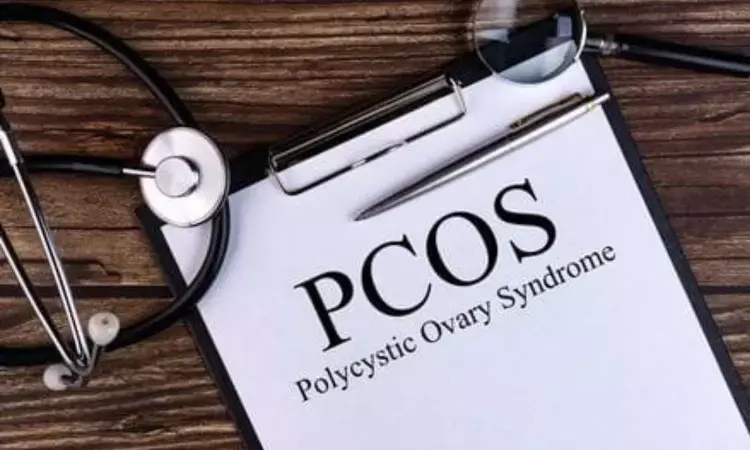- Home
- Medical news & Guidelines
- Anesthesiology
- Cardiology and CTVS
- Critical Care
- Dentistry
- Dermatology
- Diabetes and Endocrinology
- ENT
- Gastroenterology
- Medicine
- Nephrology
- Neurology
- Obstretics-Gynaecology
- Oncology
- Ophthalmology
- Orthopaedics
- Pediatrics-Neonatology
- Psychiatry
- Pulmonology
- Radiology
- Surgery
- Urology
- Laboratory Medicine
- Diet
- Nursing
- Paramedical
- Physiotherapy
- Health news
- Fact Check
- Bone Health Fact Check
- Brain Health Fact Check
- Cancer Related Fact Check
- Child Care Fact Check
- Dental and oral health fact check
- Diabetes and metabolic health fact check
- Diet and Nutrition Fact Check
- Eye and ENT Care Fact Check
- Fitness fact check
- Gut health fact check
- Heart health fact check
- Kidney health fact check
- Medical education fact check
- Men's health fact check
- Respiratory fact check
- Skin and hair care fact check
- Vaccine and Immunization fact check
- Women's health fact check
- AYUSH
- State News
- Andaman and Nicobar Islands
- Andhra Pradesh
- Arunachal Pradesh
- Assam
- Bihar
- Chandigarh
- Chattisgarh
- Dadra and Nagar Haveli
- Daman and Diu
- Delhi
- Goa
- Gujarat
- Haryana
- Himachal Pradesh
- Jammu & Kashmir
- Jharkhand
- Karnataka
- Kerala
- Ladakh
- Lakshadweep
- Madhya Pradesh
- Maharashtra
- Manipur
- Meghalaya
- Mizoram
- Nagaland
- Odisha
- Puducherry
- Punjab
- Rajasthan
- Sikkim
- Tamil Nadu
- Telangana
- Tripura
- Uttar Pradesh
- Uttrakhand
- West Bengal
- Medical Education
- Industry
Artemisinins Show Promise in Treating PCOS Through LONP1-CYP11A1 Interaction: Study

China: Recent research has unveiled a potential new avenue for treating polycystic ovarian syndrome (PCOS) using artemisinins, compounds traditionally known for their anti-malarial properties. A study published in Science has shed light on how artemisinins may ameliorate PCOS by influencing the LONP1-CYP11A1 interaction, a critical pathway involved in hormonal regulation.
Early results in human and animal models suggest that artemisinins might target all aspects of PCOS by suppressing ovarian androgen synthesis, researchers reported.
The study revealed that artemisinins reduced blood testosterone levels and cystic ovarian follicles in PCOS-like mice and improved litter size and embryo implantation in PCOS-like rats. Similarly, artemisinin treatment decreased levels of 2 blood markers of PCOS and reduced ovarian cysts in 19 human participants with the condition. The majority of participants (63%) also regained normal menstrual cycles.
PCOS, a common endocrine disorder affecting women of reproductive age, is characterized by irregular menstrual cycles, excess androgen production, and ovarian cysts. Current treatments primarily focus on managing symptoms such as infertility, insulin resistance, and hormonal imbalance. However, the underlying mechanisms driving PCOS have remained elusive until now. Current treatment options like birth control pills and metformin tend to target only specific symptoms of the condition.
Despite the high prevalence of PCOS, specific pharmacologic intervention for PCOS is challenging. In the study, Yang Liu, Fudan University, Shanghai, China, and colleagues identified artemisinins as anti-PCOS agents.
The finding demonstrated artemisinin derivatives' efficacy in alleviating PCOS symptoms in both rodent models and human patients, curbing hyperandrogenemia by suppressing ovarian androgen synthesis.
The following were the key findings of the study:
- Artemisinins promoted cytochrome P450 family 11 subfamily A member 1 (CYP11A1) protein degradation to block androgen overproduction.
- Mechanistically, artemisinins directly targeted lon peptidase 1 (LONP1), enhanced LONP1-CYP11A1 interaction, and facilitated LONP1-catalyzed CYP11A1 degradation.
- Overexpression of LONP1 replicated the androgen-lowering effect of artemisinins.
Artemisinins directly bind to LONP1, initiating the interaction between LONP1 and CYP11A1, promoting CYP11A1 degradation, subsequently inhibiting ovarian androgen synthesis, and curbing PCOS. Contrarily, the androgenic inducer disrupts LONP1-CYP11A1 interaction and aggravates PCOS.
"Overall, our research underscores the promising potential of artemisinins as effective medications for the holistic management of PCOS.," the researchers wrote.
"This discovery reveals a newly identified interaction between LONP1 and CYP11A1, which artemisinins amplify to regulate androgen synthesis, suggesting new approaches for intervening in PCOS by targeting the LONP1-CYP11A1 interaction," they concluded.
Reference:
Liu Y, Jiang JJ, Du SY, Mu LS, Fan JJ, Hu JC, Ye Y, Ding M, Zhou WY, Yu QH, Xia YF, Xu HY, Shi YJ, Qian SW, Tang Y, Li W, Dang YJ, Dong X, Li XY, Xu CJ, Tang QQ. Artemisinins ameliorate polycystic ovarian syndrome by mediating LONP1-CYP11A1 interaction. Science. 2024 Jun 14;384(6701):eadk5382. doi: 10.1126/science.adk5382. Epub 2024 Jun 14. PMID: 38870290.
Dr Kamal Kant Kohli-MBBS, DTCD- a chest specialist with more than 30 years of practice and a flair for writing clinical articles, Dr Kamal Kant Kohli joined Medical Dialogues as a Chief Editor of Medical News. Besides writing articles, as an editor, he proofreads and verifies all the medical content published on Medical Dialogues including those coming from journals, studies,medical conferences,guidelines etc. Email: drkohli@medicaldialogues.in. Contact no. 011-43720751


